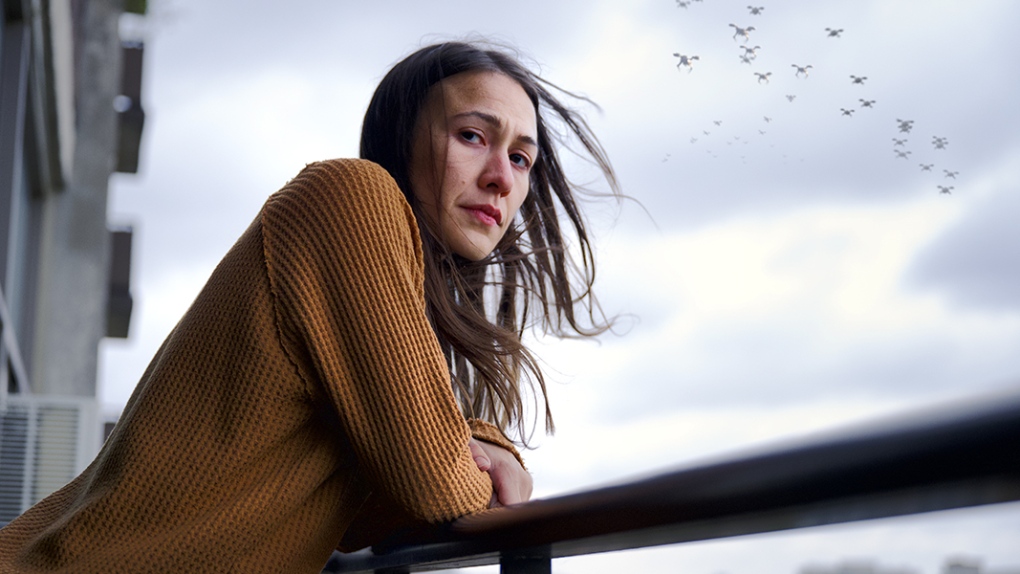TORONTO -
Cree-Metis filmmaker Danis Goulet made her feature film debut at the Toronto International Film Festival on Friday with "Night Raiders," a dystopian take on Canada's colonial legacy she says challenges the way Indigenous people are represented on screen.
The Saskatchewan-born director, who is being honoured with the TIFF Emerging Talent Award this year, told CTVNews.ca false movie narratives presenting Indigenous people as "savages that need to be civilized continue to this day," adding to harmful stereotypes.
"Indigenous people face so much racism and barriers, and are still living in poverty, many of them," Goulet said in a telephone interview. "So it is so important that we counter the narratives about Indigenous people that have been fed to us, because they're not true."
Turning typical stereotypes on their head, Goulet made Cree mother Niska and her daughter, Waseese, the heroines of "Night Raiders." Goulet said it was important for her to craft a story about "our power and resilience as Indigenous people."
Set in the near future, the film comes after a destructive war across North America leads to a military occupation seizing control of society. One of the military's core tactics is to take children from their families and put them into State Academies, or forced-education camps, paralleling that of Canada's residential school system.
"Of course it's an allegory for residential schools, but it also talks about many other colonial policies that have been inflicted upon Indigenous people throughout history," Goulet explained, such as the loss of language, cultural rights and poverty.
By placing the film in a post-war, dystopian future, Goulet said she was able to use genre filmmaking to create an "imaginary setting" for audiences to re-examine the impact of Canada's residential schools to better relate to Indigenous people and their history.
"It is really important that we grapple with the gravity of what happened," Goulet said. "This was something that was done to Indigenous people that has caused so much harm… So when we tell a story from Indigenous perspectives, my hope is that it creates deeper understanding and empathy of what we went through."
At the minimum, Goulet said she wants her film to "humanize" Indigenous people and highlight "how little agency" they had when it came to Canada's residential school system and the implementation of the Indian Act.
"We care and love our children just as much as everybody else and our children were taken away for seven generations of Indigenous families," Goulet said. "It's really important that we are able to see the truth of what happened, and then say, as Canadians, that we do not want to continue this into the future."
Steve Gravestock, programmer of Canadian films at the Toronto International Film Festival, told CTVNews.ca that the "quality of Indigenous film has always been strong in Canada," however, he says this year's lineup is especially noteworthy.
While the films would have begun pre-production years ago, Gravestock said it is likely the recent findings of unmarked graves on sites of former residential schools has increased audience interest in stories from Indigenous filmmakers.
"The revelations have made people more conscious of the disastrous impact colonialism, and its various manifestations, have had on Indigenous communities... but I think it's also a tribute to the skill of the filmmakers and it reflects the quality of that work," Gravestock said.
Despite her film dealing with a dark topic, Goulet said she hopes it provides Indigenous people with faith that they -- and future generations -- will never again be treated how their ancestors were.
"Residential school survivors that had the profound courage to say what happened to them -- it gives me hope for the future and faith in our resilience as Indigenous people," she said.
"But I also have to dare to hope that other Canadians out there want a better future for all of us too."








































